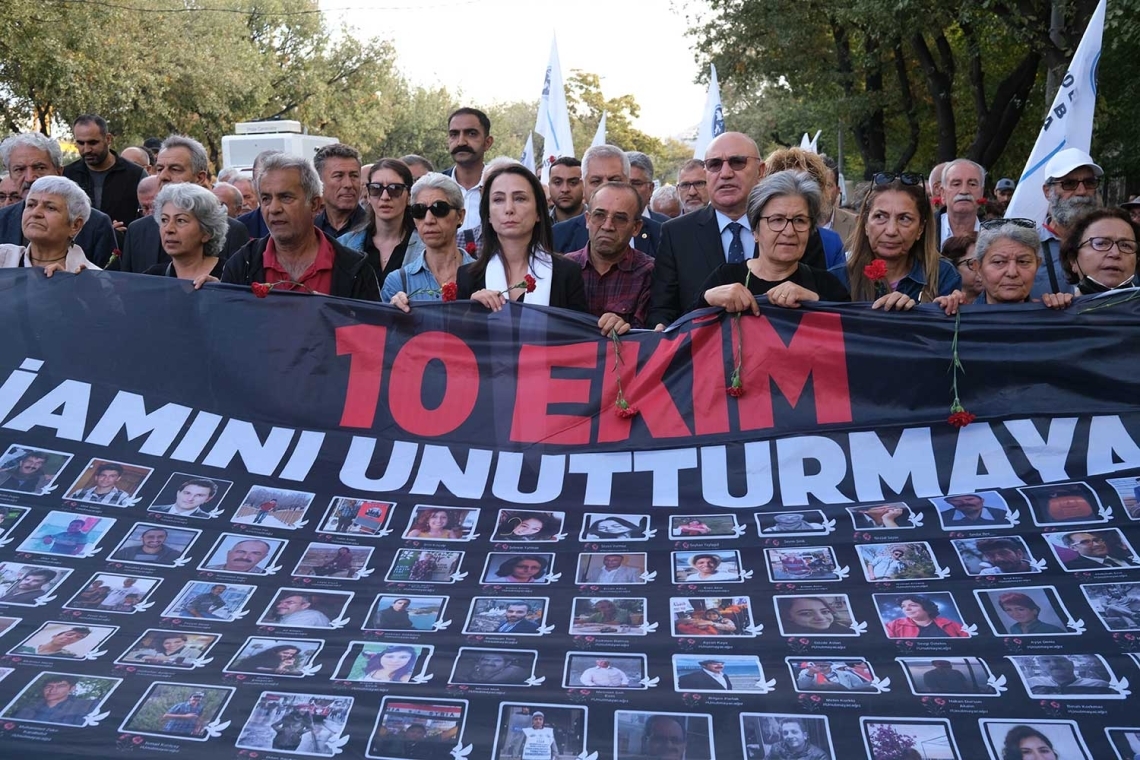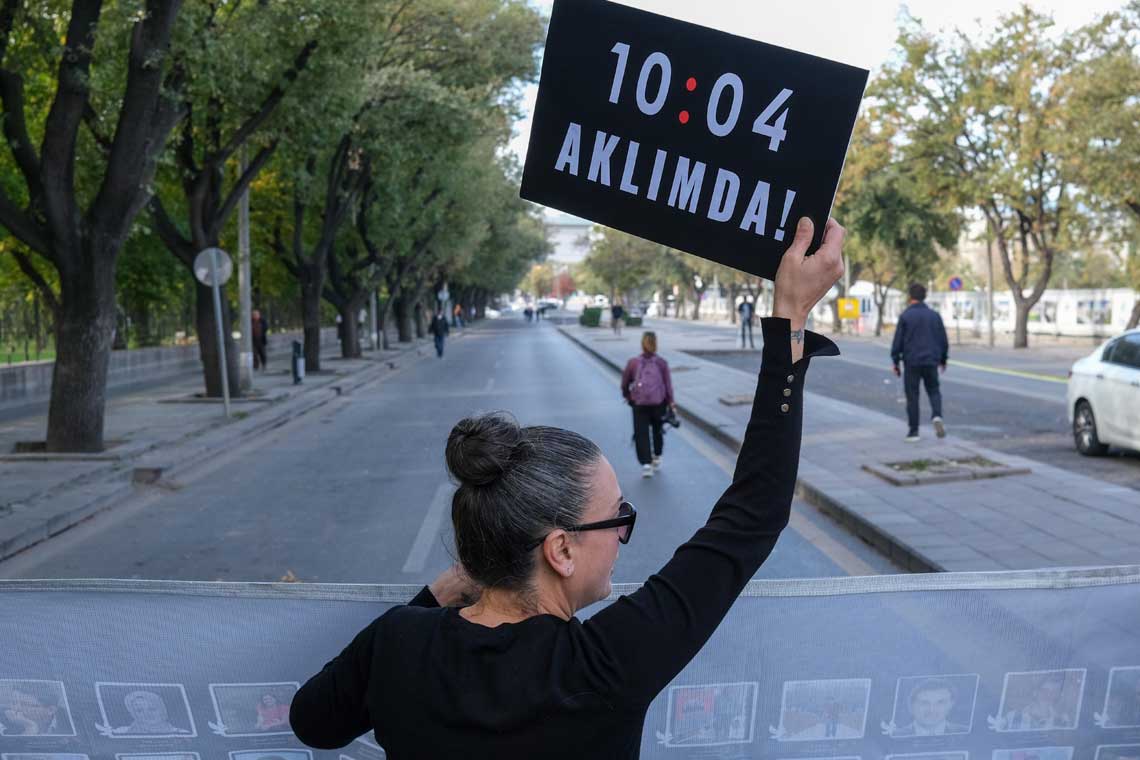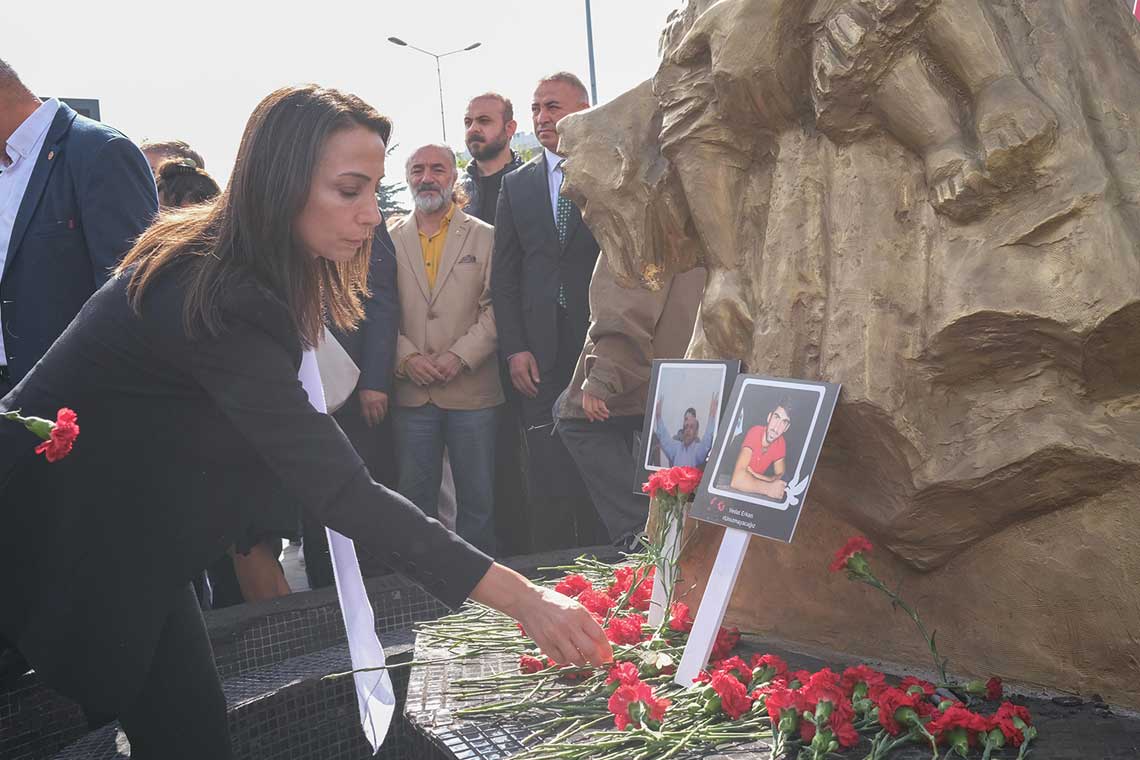BİLAL SEÇKİN
On the ninth anniversary of the October 10, 2015, Ankara Train Station bombing, in which 103 people were killed in an ISIS attack, victims were remembered in a commemoration event held in front of the station.
The bombing occurred during a peace rally organized by the Confederation of Progressive Trade Unions of Turkey (DİSK), the Confederation of Public Employees' Trade Unions (KESK), the Union of Chambers of Turkish Engineers and Architects (TMMOB), and the Turkish Medical Association (TTB). The rally, which called for peace, saw attendees from across Turkey gathering at Ankara's Train Station, where two ISIS suicide bombers detonated explosives, killing 103 people and injuring over 500.
The attack remains the deadliest in Turkey’s history.
The attack and the investigation
The investigation into the attack led to charges against 36 individuals, with 16 fugitives. The Ankara Chief Public Prosecutor’s Office’s indictment was accepted on July 13, 2016. The two suicide bombers were identified as Yunus Emre Alagöz, a Turkish national, and an unidentified Syrian. They had traveled from a safe house in Antep the night before the attack, assisted by ISIS operatives. Despite several intelligence warnings about the attack, security measures at the rally were notably insufficient. While police had been stationed in large numbers at previous rallies, only 129 officers were present around the station, and no searches were conducted.
Alagöz, who was on a "terrorist watch list," had been under surveillance, with authorities even detecting his farewell call to his family. His brother, Şeyh Abdurrahman Alagöz, was responsible for the Suruç bombing on July 20, 2015. Despite these clear warnings, the peace rally was not canceled, and neither organizers nor attendees were warned.
The court's decision
The trial began on November 7, 2016, at the Ankara 4th High Criminal Court. After 20 hearings over two years, the court convicted nine of the 19 defendants of attempting to overthrow the constitutional order and 100 counts of intentional killing, sentencing them to 101 aggravated life sentences each. The court also sentenced these individuals to 10,557 years each for attempted murder. Other defendants received lesser sentences for being members of a terrorist organization.
The court later indicted one defendant, Erman Ekici, for crimes against humanity. However, in a controversial decision on July 1, 2024, the court acquitted Ekici of the crimes against humanity charge.
Constitutional Court and ECHR decisions
In a ruling on May 16, 2024, Turkey’s Constitutional Court dismissed nine petitions filed by the victims' families, who claimed that public officials should be held accountable for negligence in preventing the attack. The court found no grounds for the claims, declaring them inadmissible.
Similarly, the European Court of Human Rights (ECHR) rejected a case filed by survivor Selçuk Coşkun, ruling that Turkey had fulfilled its obligations under international law and that adequate security measures were in place for the rally. Coşkun's compensation claim was also denied.
Memorial controversy
A memorial titled "The Mothers’ Cry," designed by sculptor Metin Yardanur, was unveiled at the bombing site. However, the unveiling was marked by controversy, as the 10 October Association, which represents victims' families, boycotted the event, accusing Ankara’s municipal authorities and the CHP of excluding them from the planning. Yardanur also declined to attend in protest, leaving the memorial to be unveiled by a delegation from the CHP.
Commemoration at the station
On the ninth anniversary, democracy activists, civil society organizations, political parties, survivors, and victims' families gathered at Ankara Train Station for a commemoration. The group marched from Ulus Metro Station to the site, carrying a banner that read "We will not forget the October 10 massacre." The event included a moment of silence and the laying of carnations at the memorial to honor those who lost their lives.





